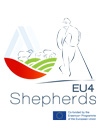Principles of plant breeding and seed production
|
Course title: |
Principles of plant breeding and seed production |
|
|
Course code: |
AFPPS |
|
|
ECTS: |
5 |
|
|
In-class hours |
Lectures: |
30 |
|
Laboratory work/Tutorials: |
30 |
|
|
Self-preparation hours |
Practical training: |
20 |
|
Other: |
50 |
|
|
Total hours: |
125 |
|
|
Language: |
English |
|
|
Study cycle: |
Bachelor, Master, PhD |
|
|
Semester: |
Winter & Summer |
|
|
Faculty: |
Faculty of Agronomy |
|
|
Name of the lecturer(s): |
Assoc. Prof. Marina Marcheva, PhD |
|
|
Mode of delivery: |
Face-to-face, distance learning, combination of both |
|
|
Prerequisites: |
Crop science, botany, genetics, physiology, biochemistry, phytopathology, entomology |
|
|
Learning outcomes of the course unit: |
The course “Principles of plant breeding and seed production “ is focused on the main principles of classical and modern methods of genetic improvement of crops, selection and stabilization of the best genotypes, according to their biological and reproductive specifications. Case studies of the main field crops are discussed to illustrate the hybridiziation technics, mutation breeding and plant biotechnology application in the plant breeding and multiplication processes. Differences between plant varieties for biological and conventional agriculture are discussed. Analyses of deterioration causes of field crop varieties and their control are presented in lectures and exercises. Students are trained to adequate methods for maintenance, storage and multiplication of basic and certified seeds and planting material of registered varieties according to CPVO and UPOV legislation. Theoretical and practical knowledge aquired in the course are useful in scientific, administrative or practicle field work and organization of the production and marketing of seeds. |
|
|
Course contents: |
Lectures (30 hours) 1. Main principles of plant breeding. Hystory and development of plant breeding. Relations to the others biological sciences. Plant breeding purposes, strategies and programs. Ideotype of field crops. 2. Plant breeding activities. Establishment of collection of genetic variation. Selection of desirable genotypes. Evaluation of new varieties. Propagation and distribution. Principles and specification of self-pollinated, cross-pollinated and vegetatively-propagated crops. Documentation of the process. 3. Plant breeding initial material. Sources of genetic variation. Plant genetic resources- collection, investigation, evaluation and conservation. Centers of crop diversity and origin by Vavilov and Jukovski. 4. Breeding self-pollinated crops. Mass selection. Pure line breeding. Pedigree breeding. Bulk population selection. Backcross breeding. 5. Breeding cross-pollinated crops. Mechanism promoting cross-pollination. Choice of parental lines. Methods and technics of hybridizations in various field crops. Single plant selection. Progeny selection. Recurrent selection. Backcross selection. 6. Heterosis breeding. Inbreeding depression. Inbred lines development. Nomenclature. Single cross, double-cross, three ways cross hybrids. Male sterility. Achievements and perspectives in hybrid breeding. Distant hybridization in plant breeding. Features. Barriers associated with distant hybridization. Technics for production of distant hybrids. Achievements. 7. Mutation breeding. Kinds of mutations. Induction of mutation. Mutator genes and controlling elements. Mutant progenies selection. Role of mutation breeding. Polyploidy breeding. Autopolyploidy. Aneupolyploidy. Eupoliploidy (haploids and aloploids). Synthesis and resynthesize of species. 8. Biotechnological methods in plant breeding. In vitro conservation of PGR, breeding lines and varieties. Induction of genetic variability, facilitating the classical breeding procedure. Tissue culture. Somaclonal variation. Somatic embryogenesis. Embryo and another culture. Genetic engineering. 9. Adaptation potential of field crops. Breeding methods of evaluation and selection of stress reaction to various breeding materials. Productivity evaluation of breeding lines. Breeding of resistance to abiotic and biotic stress factors. Differences between plant varieties for biological and conventional agriculture. 10. Principles of seed production. Seed production organization. Deterioration of varieties. Maintenance of genetic purity during seed production. Documentation. Seed control and field inspectation. UPOV and CPVO legislation.
Seminars and practical exercises (30 hours) 1. Field training. Organization of the plant breeding trials for cereal crops. 2. Descriptors for DUS of UPOV and CPVO. 3. Methodology of winter resistance assessment in field trials. 4. Evaluation of the stress tolerance and fungal resistance in various breeding lines of barley and wheat. Selection procedures of hybrid progenies of cereal crops. 5. Hybridization procedures in wheat and barley. Emasculation of female flowers of wheat and barley. 6. Assessment of pollen viability in barley. Pollination of barley and wheat simple crosses. 7. Field inspection in seed production fields. 8. Laboratory test of seed quality. Certification of seeds. 9. Discission on ideotypes of cereal and oil crops varieties. 10. Variety registration and introduction in farming system. |
|
|
Recommended or required reading: |
1. Allard, R., 1999, Principles of Plant Breeding, John Wiley and Sons 2. Acquaah, G., 2012, Principles of Plant Genetics and Breeding, ISBN: 978-0-470-66476-6 3. Brown, J., P. Caligari, 2013, An Introduction to Plant Breeding, DOI: 10.1002/9781118685228 4. Hayward, M., N. Bosemark, 1993, Plant Breeding: Principles and Prospects, ISBN 0-412-43390-7. |
|
|
Planned learning activities and teaching methods: |
Lecture, presentation, tutorials, conversation, discussion, exercises, practical training, multimedia presentation. |
|
|
Assessment methods and criteria: |
Exercises evaluation, Written exam or presentation of a breeding project |
|
 - Events on the occasion of the 80th anniversary of AU
- Events on the occasion of the 80th anniversary of AU











